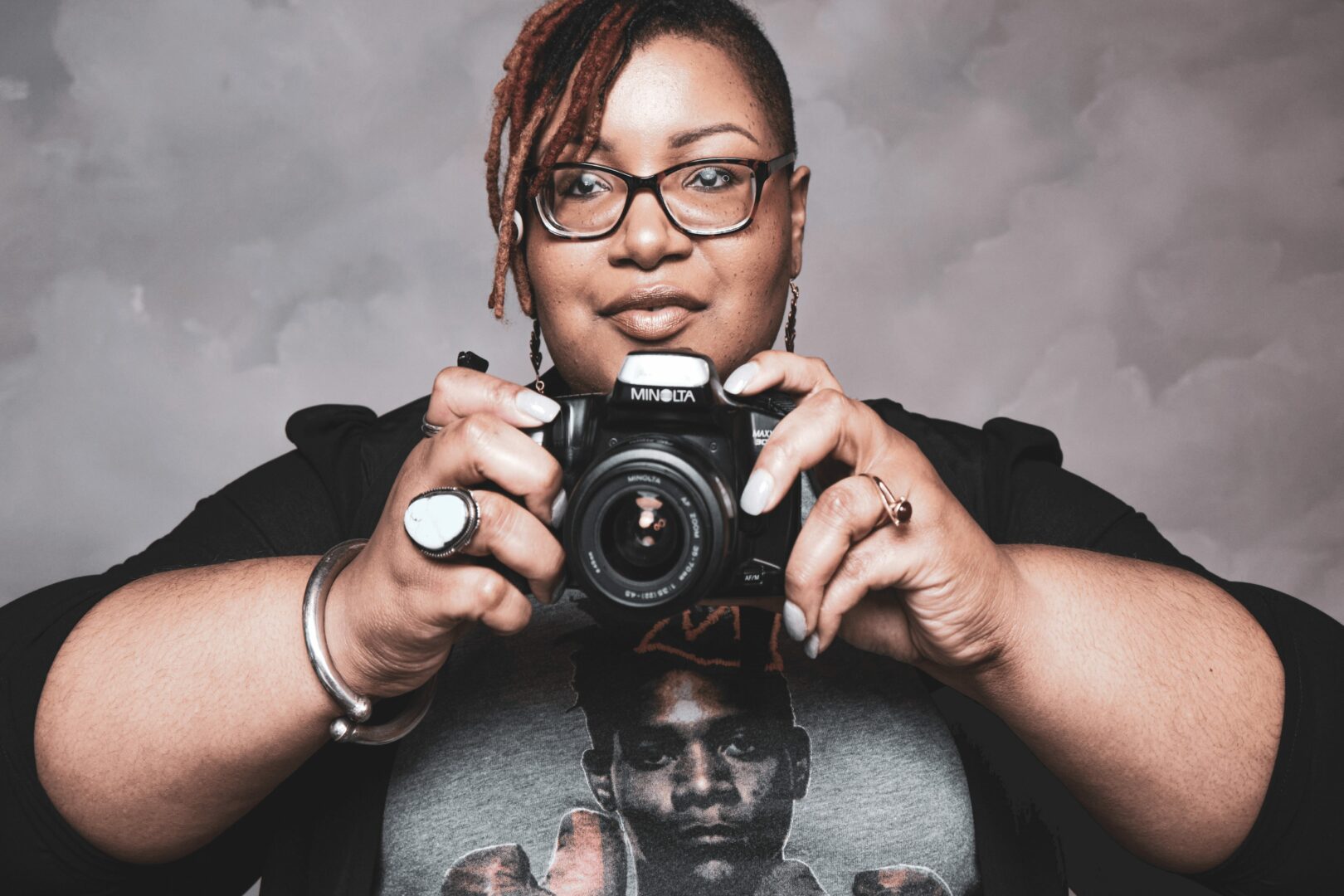We recently connected with Kara Mshinda and have shared our conversation below.
Kara, appreciate you making time for us and sharing your wisdom with the community. So many of us go through similar pain points throughout our journeys and so hearing about how others overcame obstacles can be helpful. One of those struggles is keeping creativity alive despite all the stresses, challenges and problems we might be dealing with. How do you keep your creativity alive?
My creativity is sustained by a curious mind, tenacity, dreaming, and an endearing obsession with understanding lived experience. For me, creativity is a source that is ever present; however, stress, disconnection, and the perpetual threat of imbalance caused by living in an evolving and techcentric world can hinder us from seeing the beauty that surrounds us. I have developed two techniques over the years that I use to keep creativity alive. The first is “looking deeply” and the second is engaging in “artful play” everyday. Looking deeply may be applied to viewing artwork, listening to music, or body movement. It is a practice that uses all physical senses and requires me to slow down and focus on what I see, feel, or think in my immediate environment. I look at artwork and listen to music everyday because it centers me and feeds my curiosity. Artful play is drawing, photographing, doodling, singing, painting, collaging, sorting, building, solving puzzles, dreaming, or writing. I try to do something artful everyday by keeping sketchbooks and art supplies nearby. I often carry a “collage kit” or small sketchbook and a pen with me when I’m out in the world. If I have an idea, I jot it down or I sketch. These practices have helped me stay in tune with my creativity and others.


Let’s take a small detour – maybe you can share a bit about yourself before we dive back into some of the other questions we had for you?
I’m a visual anthropologist who creates photo-based artworks about identity, memory, and embodiment in community contexts. Most of the photographic work that I do is lo-fi (instant film, Lomography). My current body of work, All Hands Hold, is an instant film photography project and visual study about identity expression and hand performance. In this project I incorporate the methods of photo-ethnography, collage, visual studies, and alternative print processes. The source imagery for the collage-works in this series includes photographs that I captured on black and white 35mm film, instant film, and digital photographs taken with my cellphone. The topics of the imagery range across multiple themes like memory, belonging, desire, introspection, and abstraction.
In addition to being a working artist, I am Fellowship Director at Da Vinci Art Alliance and Principal Collaborator of GrioXArts, a studio-centered art space at Cherry Street Pier that focuses on building community via process-based art education. You may see my work at upcoming exhibitions at Art on Paper (New York), September 5–8, Ubuntu Fine Art Gallery, February 2025, and the 20*20 House in August 2025.


Looking back, what do you think were the three qualities, skills, or areas of knowledge that were most impactful in your journey? What advice do you have for folks who are early in their journey in terms of how they can best develop or improve on these?
The three qualities, skills, or areas of knowledge that were most impactful on my artistic journey are: (1) interdisciplinary collaboration, (2) developing critical thinking skills, and (3) teaching. Most of my learning and my teaching practices have been cultivated in interdisciplinary settings. I was fortunate to have educators and artists in my life who drew from different areas of expertise and exposed me to various areas of knowledge and artistic processes. These educators taught me how to think differently about the world by challenging me to move beyond my own microcosm of experience and learn new possibilities. I think asking questions is paramount to developing critical thinking skills. Critical thinking gives our imagination a path to grow and expand. My advice to emerging writers, artists, photographers, and creatives is to continue to ask questions, think about the possible trajectories in which your artistic voice can go, don’t settle for one answer but look to others for ideas and inspiration.


Okay, so before we go, is there anyone you’d like to shoutout for the role they’ve played in helping you develop the essential skills or overcome challenges along the way?
When I think back on people and experiences that have been most helpful in helping me navigate challenges or build skills in coping and resilience, I’d cite my identity, my Christian faith, and the women in my family. These include my mother, my sister, grandmothers, aunts, my nieces, and cousins. They are the “torch bearers.” Watching them lead and live taught me how to be industrious, persistent, dedicated to my goals, and to have a secure sense of self. I am a feminist, black, queer woman. I learned early that developing positive self-esteem and having a true sense of self-worth are tools that can help you overcome challenges.
Contact Info:
- Website: https://www.karamshinda.com
- Instagram: https://www.instagram.com/karamshinda
- Facebook: https://www.facebook.com/karamshindaart
- Linkedin: https://www.linkedin.com/in/kara-mshinda-a50b22126/


Image Credits
Ra Hall
Tyler School of Art and Architecture
so if you or someone you know deserves recognition please let us know here.




